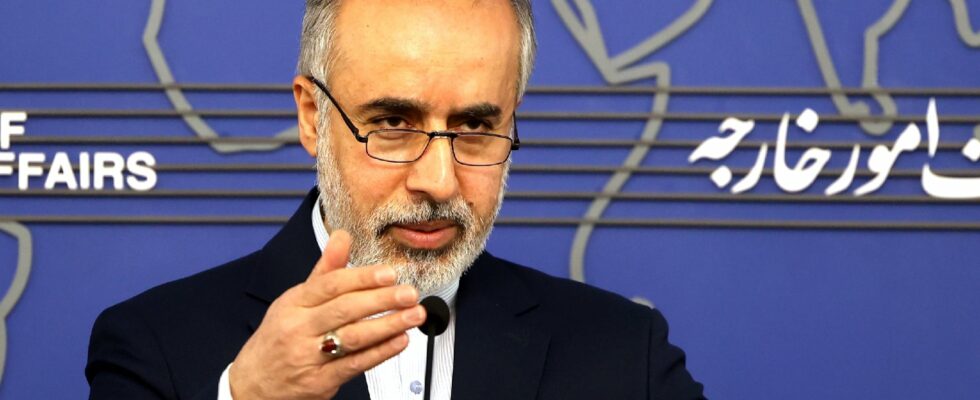The Middle East is holding its breath this week. On Tuesday, August 13, Iran once again rejected the call from several Western countries, including France, to abandon its threats against Israel. For two weeks, Iran and its allies have been threatening Israel with an armed response, following the assassination on July 31 in Tehran of Hamas political leader Ismail Haniyeh, attributed to Israel, and the death the day before of Hezbollah military leader Fouad Chokr in an Israeli strike in Lebanon.
On Tuesday, Foreign Ministry spokesman Nasser Kanani said that Iran is not asking for “authorization from anyone to use its legitimate rights” and retaliate against its sworn enemy. A new rejection, while the risk of a military escalation seems imminent: on Monday, August 12, the spokesman for the American National Security Council, John Kirby, estimated that a “series of significant attacks” could occur as early as “this week” from Iran and allied armed groups.
Attack threats still unclear
And Tehran does not claim otherwise in its new statement. Thus Nasser Kanani repeated on Tuesday that “the Islamic Republic is determined to defend its sovereignty.” A direct response to a joint statement published Monday by the American, French, German, Italian and British leaders, calling for “renunciation” of an attack that would have “serious consequences” for regional security.
In a telephone conversation the same day with German Chancellor Olaf Scholz, Iranian President Massoud Pezeshkian said his country had the “right to respond to aggressors in accordance with international standards,” according to a statement by Iran’s state news agency IRNA. The vague wording left few clues about the details of such an attack.
In April, Tehran had already launched an unprecedented drone and missile attack on Israeli territory, in retaliation for a strike against the Iranian consulate in Syria, also attributed to Israel. This time, the Iranian response has so far been limited to the organization, on Sunday, August 11, of new military exercises by the Revolutionary Guards on the border with Iraq, reports the Reuters news agency.
Waiting as a psychological weapon
Despite Western concerns, Iran may settle for targeted attacks, according to Iranian reformist politician Mohammad-Sadegh Javadi-Hesar: “Iran is talking about revenge rather than a direct attack, which could involve an assassination or actions aimed at disrupting Israel’s maritime trade,” he explains. to the British daily Financial Times.
Could this be an admission of weakness on Iran’s part? For a regime insider, quoted by the same media, keeping Israel and its Western allies in the dark could also be an intentional strategy: “There may be no attack at all, or there may be one tonight.” […] “Waiting for death is harder than death itself,” he believes.
“Psychological warfare” or not, the Iranian threat seems real enough in the eyes of the United States to make them fear a general destabilization of the Middle East: the American army has reinforced its military presence in the region in recent days, by deploying stealth fighter planes and more warships.
Blackmail for a ceasefire in Gaza?
The White House also said that if the attack were to occur, “it could certainly have an impact on the discussions” scheduled for Thursday on a ceasefire in the Gaza Strip, accompanied by the release of Israeli hostages held there.
Conversely, a deal on Gaza could be key to avoiding an Iranian escalation. While Iran said Friday that its retaliation was “a completely extraneous matter” to these negotiations, the regime added that its response would be “timed and conducted in a way that does not harm the potential ceasefire,” specifies the Iranian state agency Irna.
Thus, according to the Iranian informant quoted earlier by the Financial TimesIran could wait to “see if Israel will first compromise on Gaza, by forcing [le Premier ministre israélien Benyamin] Netanyahu to agree to a ceasefire, and then whether the United States and Western states will resume negotiations to revive the 2015 nuclear deal. If the Iranian regime gets its way, Tehran’s threat could thus be limited to a symbolic attack on Israel, without risking a costly and unpopular total war with its population.
